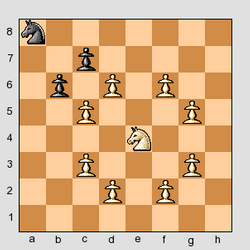Chess Novice
Chess for beginners
Set Up and Notation
The chess board should always be set up with a white square in the right hand corner. The squares from left to right on the white side of the board are lettered A-H. These are known as Files. The rows are numbered 1-8 from the white side of the board to the black side, and are known as Ranks.
So looking at the picture you can see the white pawns are on the second rank, while both kings are on the E file.
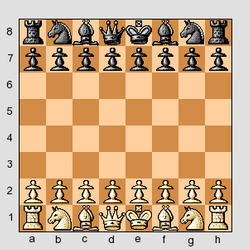
Queen's go on their colors. White queen on a white (or light) square, black queen on a black (or dark) square.
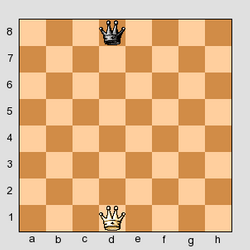
First Moves
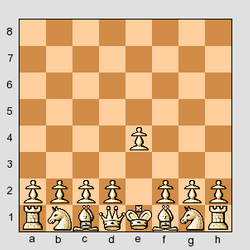
Queen's pawn opening
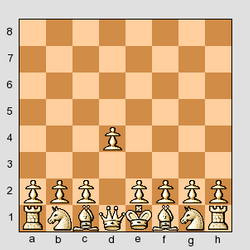
Important Squares
Early on in the game it is important to control the center of the board. If you control the center then you can direct the attack and keep your opponent from easily moving his pieces towards your king.
The center squares that are most important are E4, D4, E5, and D5
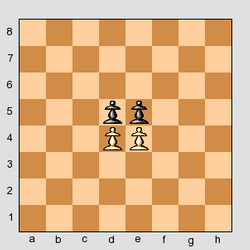
Castling
Castling is when you move your king to safety in the corner, usually behind pawns. It is the only time you move two pieces at once. Many beginners think that castling just gets you stuck in the corner, but it is much easier to check mate a king that is stuck in the middle of the back row. This isn't always the case but play through many grandmaster games and see how often they castle.
Generally until you have some experience and confidence on when to castle or not, it is a good idea to castle by the 10th move. Protect your own king, then launch an attack at your opponents. Nothing feels worse than setting up a great attack against an enemy king just to be check mated a few moves down the road becuase you neglected your own defense.
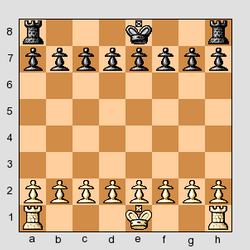
Black has castled queenside, white castled kingside. You may castle to either side as long as the rook on the side you castle to hasn't moved and the king hasn't moved. Move the king over two squares and then place the rook on the other side of the king.
This is also a good way to mobilize your rooks. castling is known to be a fast way to get a rook out of the corner. Just remember you can't castle out of check.
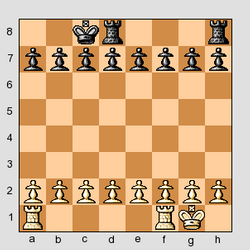
Making the most of knights
Because of the way knights move, they are poorly placed if they are on the edge of the board. Knights can attack twice as many squares when placed in the center of the board (another reason to control the center).
There is an old cliche that states "A knight on the rim is grim". When possible it is best to move the knights towards the center.
knights are also strongest when supported by pawns. In the diagram below White's knights are well placed, black's are not.
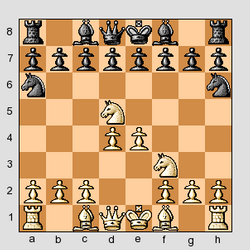
In this diagram (below) the knights can attack all the squares that have pawns of their same color. Notice how many pawns the white knight can take compared to the black knight. "Knights on the rim are grim" is an old cliche for a reason.
